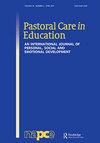The enduring centrality of pastoral care in education
IF 0.9
Q3 EDUCATION & EDUCATIONAL RESEARCH
引用次数: 0
Abstract
Welcome to this second issue of Pastoral Care in Education, another issue bursting with original and insightful articles addressing a characteristically broad range of pastoral themes of relevance to educators across a wide range of settings. This issue is being published as we emerge from Covid-19 restrictions and are enjoying ‘reconnecting’ with others for the first time in two years. While the past two years have presented enormous and enduring challenges to all those engaged in the pastoral wellbeing of children and young people, this period has also given us an unprecedented opportunity to reflect on the development of the role of teachers and the purpose of schooling itself. On reading Tim Brighouse and Mick Waters’ recently published monumental volume About Our Schools: Improving on Previous Best, which sets out over 600 pages what ‘education leaders can do to enable our schools to improve on their previous best’ (Brighouse & Waters, 2022), it is striking that pastoral care is barely mentioned by any of the contributors. Despite reviewing policy and practice since the 1970s across multiple chapters on curriculum, pedagogy and assessment, initial teacher education, school improvement and leadership, special educational needs, accountability and governance, the importance of pastoral care is noticeable only for its absence. Brighouse and Waters (as well as the collection of eminent contributors) have singularly failed to recognise just how centrally important pastoral care is to education and to improving our schools. Almost half a century ago in his seminal Pastoral Care Michael Marland (1974) wrote that school is essentially ‘a community concerned with the total welfare of the young person – a caring community’ (p. 5) and that ‘at the heart of the matter there can be no pastoral/academic split’ (p. 2). Similarly, in The Teacher and Pastoral Care, another pioneer of pastoral care in education, Douglas Hamblin (1978) called for a ‘carefully planned integration of the pastoral and the curricular aspects’ of the school, warned against reactive pastoral care as ‘emotional first-aid for adolescent tensions in a complex society’ (p. 1) and asserted that with effort, teachers have the power to create an environment ‘within which standards of excellence are actively pursued, and healthy social and emotional development is encouraged’ as a ‘product of the relationships between teacher and taught’ (p. 275). While the world has changed much since the 1970s, it is very evident from reading the content of this latest issue of Pastoral Care in Education that the words of Marland and Hamblin retain enormous significance in our contemporary educational and broader societal context. PASTORAL CARE IN EDUCATION 2022, VOL. 40, NO. 2, 125–127 https://doi.org/10.1080/02643944.2022.2073727教牧关怀在教育中的持久中心地位
欢迎来到《教育中的教牧关怀》的第二期,这是另一个充满了原创和深刻见解的文章的问题,讨论了与广泛背景下的教育工作者相关的特色广泛的教牧主题。本期杂志出版之际,我们正摆脱Covid-19的限制,两年来第一次与他人“重新联系”。虽然过去两年对所有从事儿童和青少年牧民福利工作的人都提出了巨大而持久的挑战,但这一时期也给了我们一个前所未有的机会来反思教师角色的发展和学校教育本身的目的。在阅读蒂姆·布里格豪斯和米克·沃特斯最近出版的具有里程碑意义的《关于我们的学校:在以前的最好的基础上改进》一书时,这本书列出了600多页的“教育领导者可以做什么来使我们的学校在以前的最好的基础上改进”(布里格豪斯和沃特斯,2022年),令人惊讶的是,任何贡献者几乎都没有提到教牧关怀。尽管回顾了20世纪70年代以来的政策和实践,涉及课程、教学法和评估、初级教师教育、学校改进和领导、特殊教育需求、问责制和治理等多个章节,但教牧关怀的重要性只是因为它的缺失而引人注目。布里格豪斯和沃特斯(以及许多杰出的贡献者)都未能认识到教牧关怀对教育和改善我们的学校有多么重要。近半个世纪前,在他开创性的《教牧关怀》一书中,迈克尔·马兰(Michael Marland, 1974)写道,学校本质上是“一个关注年轻人整体福利的社区——一个充满爱心的社区”(第5页),“在问题的核心,不可能有教牧/学术的分裂”(第2页)。同样,在《教师与教牧关怀》一书中,教牧关怀在教育领域的另一位先驱,道格拉斯·汉布林(Douglas Hamblin, 1978)呼吁学校的“精心策划的教牧和课程方面的整合”,警告不要将被动的教牧关怀作为“复杂社会中青少年紧张情绪的急救”(第1页),并断言,通过努力,教师有能力创造一个“积极追求卓越标准的环境”。健康的社会和情感发展被鼓励为“老师和学生之间关系的产物”(第275页)。虽然自20世纪70年代以来,世界发生了很大的变化,但从阅读最新一期《教育中的教牧关怀》的内容可以明显看出,马兰和汉布林的话在我们当代的教育和更广泛的社会背景下仍然具有巨大的意义。教牧关怀在教育2022,卷40,no。2,125 - 127 https://doi.org/10.1080/02643944.2022.2073727
本文章由计算机程序翻译,如有差异,请以英文原文为准。
求助全文
约1分钟内获得全文
求助全文

 求助内容:
求助内容: 应助结果提醒方式:
应助结果提醒方式:


